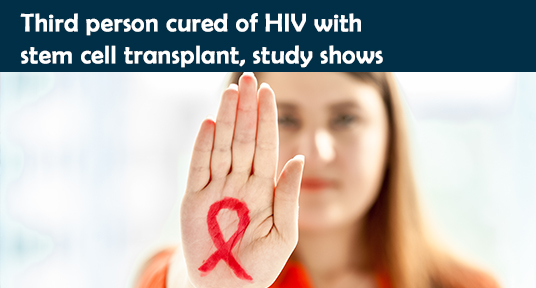An international team of physicians and researchers from Germany, the Netherlands, France, Spain, and the United States has identified a third case in which HIV infection has been cured by hematopoietic stem cell transplantation. The successful healing process of the patient, known as the “Düsseldorf patient,” was for the first time characterised in great detail virologically and immunologically over a time span of ten years in a study published in Nature Medicine. Stem cell transplantation has cured two people living with HIV in the past, making it the only medical intervention that has cured severe blood cancers. The study shows that HIV can be cured, providing important insights for further research into a cure for HIV for the vast majority of people living with HIV.


